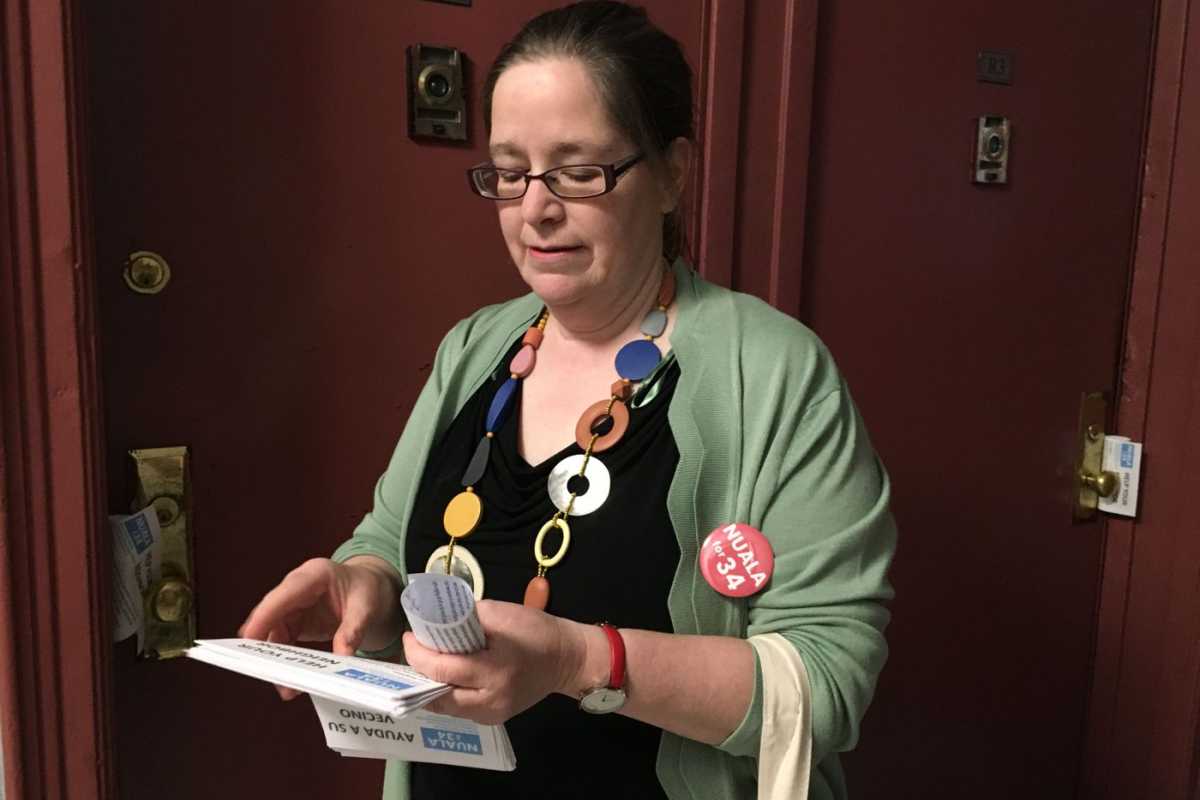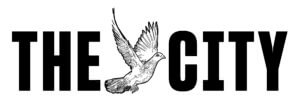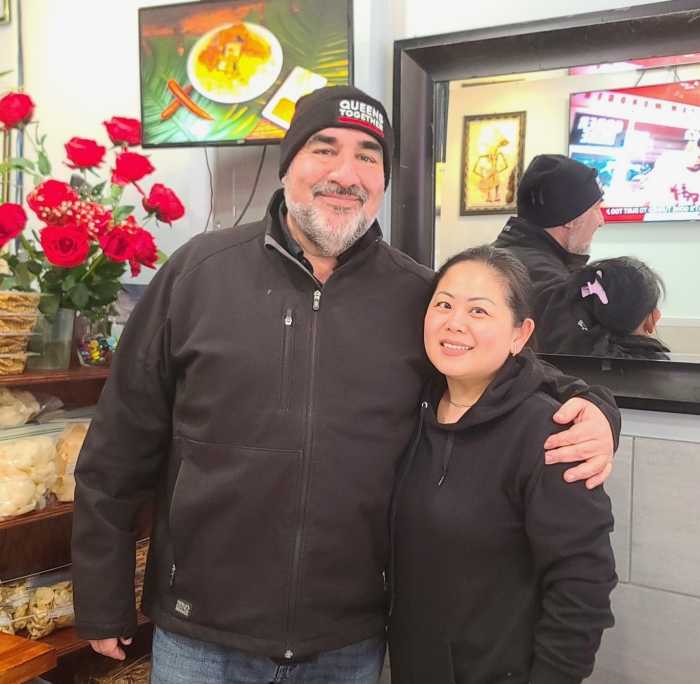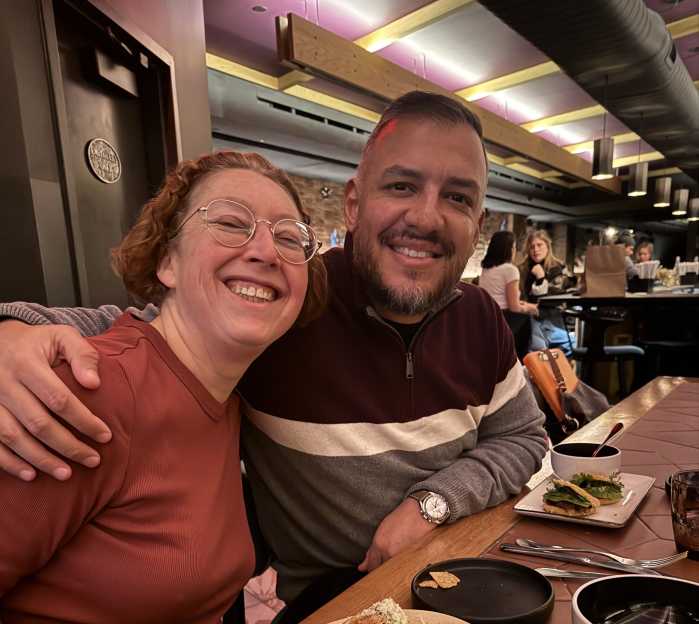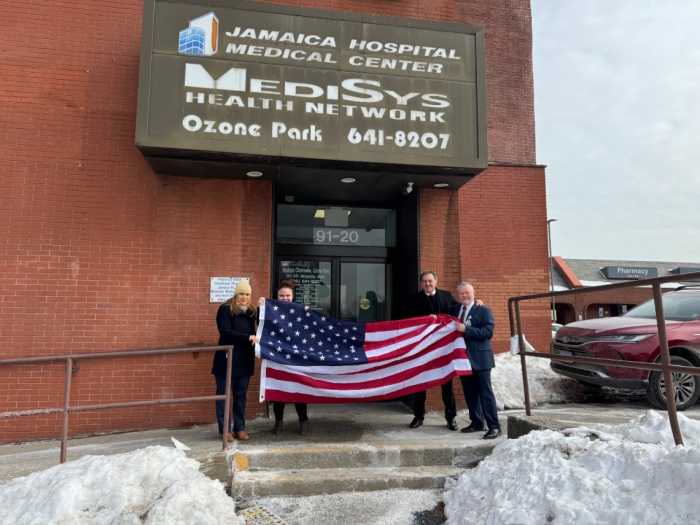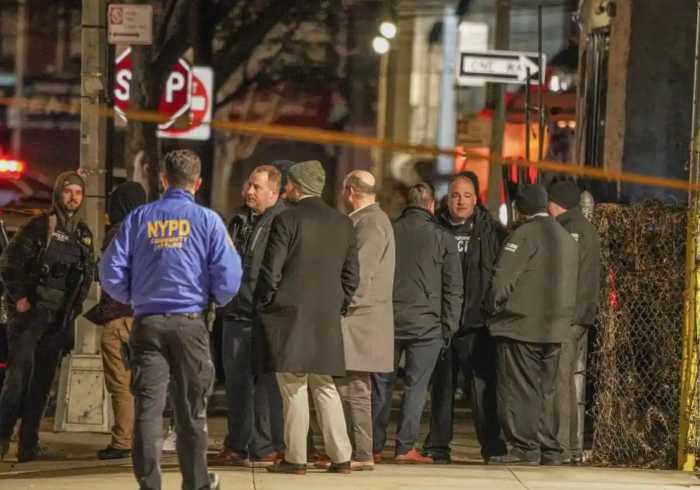This story was originally published on March 14, 2020 by THE CITY.
BY RACHEL HOLLIDAY SMITH with additional reporting by CLAUDIA IRIZARRY APONTE and GABRIEL SANDOVAL, THE CITY
Facing down a global pandemic, Nuala O’Doherty-Naranjo wields deceivingly simple tools: flyers and a Facebook group.
The longtime Jackson Heights resident is making sure her neighbors have what they need. Her quest started with an online post late on Thursday afternoon.
“Many of our older and at-risk neighbors are frightened to leave their homes and to go out in public given the COVID-19 outbreak,” she wrote on a local Facebook page. “I live on 90th Street and am happy to run errands.”
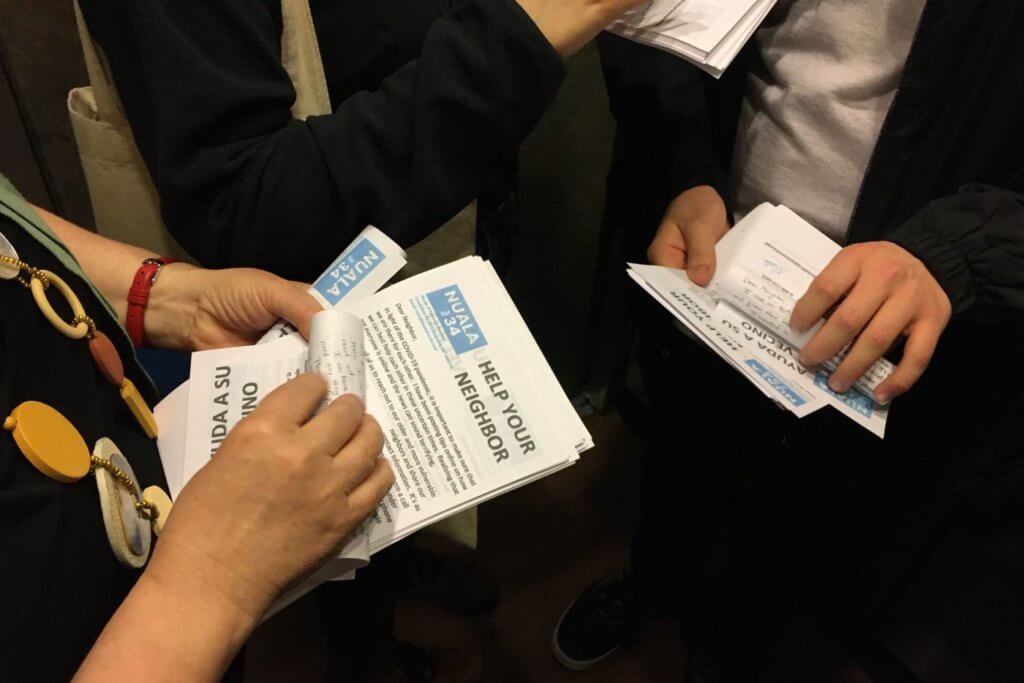
O’Doherty-Naranjo posted her number and asked others to help. Within 24 hours, more than 30 people reached out to pitch in. The newly formed group, COVID Care, is getting organized, matching volunteers with isolated people who need help.
“When you’re told that it’s scary to go outside, you can kind of feel incarcerated in your apartment,” she told THE CITY. “I think that connection to neighbors is really important — and good to know that there are people outside who care about you.”
Until recently, O’Doherty-Naranjo was petitioning to run for a state Assembly seat. But that’s “totally on pause,” she said. Now, she’s going door-to-door, dropping notes, to find out who else may need assistance.
‘A Positive Message’
In Manhattan, Michael Tashji took it upon himself to run errands for vulnerable neighbors.
The Tudor City resident works from home and has some time — so why not help out? he thought.
Tashji posted a message on Facebook suggesting others do the same. So far, he’s picked up milk, bread and prescriptions for elderly and ailing neighbors.
“People are going a little crazy and I wanted to put a positive message out there and remind everybody that we’re in this together and we should remain neighborly and not, you know, go full savage at the supermarket,” he said.
In Brooklyn, Greenpoint resident Kevin LaCherra helped collect volunteers virtually — on a public Google Document created Thursday for neighbors on the North Brooklyn Civic Engagement Facebook page to offer services and remotely accessible resources without risking further spread of the virus.
Within a few hours, the list drew more than 50 responses, including translation and interpreting services, grocery delivery, transportation, flyer design, cooking and construction.
“I’m not surprised that the community stepped up because that’s what north Brooklyn does,” LaCherra told THE CITY.
Losing Volunteers
Amid the coronavirus outbreak, New Yorkers driven by the urge to help have options.
Healthy people willing to work are badly needed to fill in where volunteers have bowed out.
Karen Pearl, president of God’s Love We Deliver, said she lost 800 volunteers in the last week — about 30 to 40 percent of her usual crew. That’s because a steady flow of corporate volunteers shut off when many companies banned gatherings, including volunteer work.
Before social-distancing measures or quarantining rules get more strict, the group is looking for help preparing, packaging and delivering provisions like tuna, peanut butter and protein-rich soups to frail clients unable to cook or shop for themselves.
“We made a decision that we would do everything we could — unless we get shut down in the middle of it — to ensure that clients have at least their regular food, plus a week of shelf-stable food … in case we are not able to get there,” she said.
As the coronavirus spreads in New York, how are you helping your friends, family and neighbors? We want to hear your creative ideas for giving back in a pandemic where people are being urged to avoid contact with others. Email reporter Rachel Holliday Smith at rsmith@thecity.nyc.
More help is needed to assist the remaining volunteers who are pulling double shifts to make it all work. But, Pearl stressed, “We don’t want people who are sick.”
“Even if you’re positive that your runny nose is a seasonal allergy — it’s making people very nervous,” she said.
The virus also has hurt blood drives in the area, according to Aly Barraza of the Red Cross. In New York state, about 30 drives — the volunteer-led events that bring in 80 percent of the organization’s blood donations, she said — have been canceled, stretching into May.
“There’s a short shelf life, 42 days” for blood, she said. “So, if folks are not donating, we could see a potential impact for patients in need.”
New Yorkers can visit the American Association of Blood Banks website to find the nearest blood donation center.
Barraza stressed that while no respiratory virus has been transmitted through blood transfusions, anyone who has visited a country struggling with COVID-19 should wait 28 days to give blood — “double the incubation period,” she said, “out of an abundance of caution.”
‘Hold On to That Feeling’
Another consideration for New Yorkers itching to get out and help, according to one volunteering veteran: Hold your horses, for now.
Gary Bagley, president of the volunteer coordinating agency New York Cares, said there’s often a three-to-seven-day period of “intense interest in helping” in times of disaster that drops off “just as the need is really surfacing.”
Now is a great time to sign up and get familiar with the requirements of volunteering — New York Cares is now running digital orientations for people — so that you’re ready to go at the right time.
“Hold on to that feeling,” he said. “Get oriented, stay in daily touch, because needs will evolve.”
For example, New York Cares partners with the Office of Emergency Management to deploy volunteers to help with spontaneous action, which could include moving meals from public schools to students’ homes should schools close.
“Just be ready to go as soon as there’s a clear direction,” he said. He noted the group has volunteer opportunities in almost every neighborhood in the city, to give people options that are within walking distance.
And for those who cannot or do not want to leave their homes, there’s an old-fashioned way to help: Give cash to any social service group you think does good work, Bagley said.
“Whenever the coronavirus is in our rearview mirror, hopefully, we know that there’s going to be a huge amount of service that we’re going to try to grow and meet,” he said.
‘I’m Here for You’
On social media, New Yorkers brainstormed other ways to contribute.
“If you are staying home and canceling babysitters, house cleaners, etc. … if you’ve already budgeted for it and can afford it, maybe just pay them anyway?” suggested food writer Francis Lam.
Rep. Alexandria Ocasio-Cortez (D-Queens, The Bronx) suggested in a tweet to “tip (a lot) extra if you can” and to “donate to food pantries, shelters, etc.”
And as restaurants take a huge hit here, some are getting hip to a trend that began on the West Coast and is spreading across the country: Buy gift cards from your favorite eateries. Even if you can’t go out, the logic goes, you can still support the business.
In Queens, O’Doherty-Naranjo preaches the value of the low-tech approach.
“Just put your name and number on a Post-it, slide it under your neighbor’s door and say, hey, I’m here for you,” she said. “It’s that simple.”
This story was originally published by THE CITY, an independent, nonprofit news organization dedicated to hard-hitting reporting that serves the people of New York.

